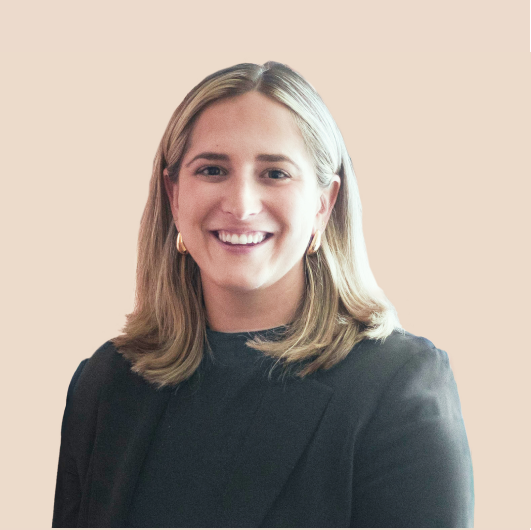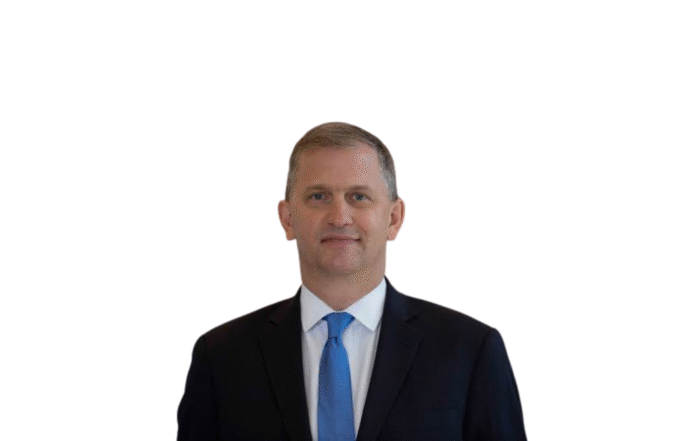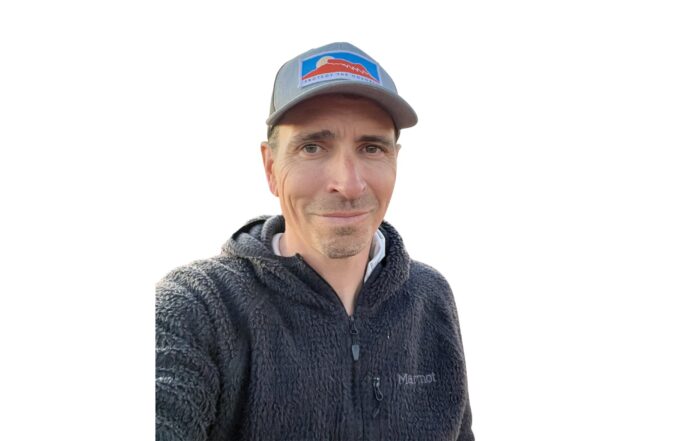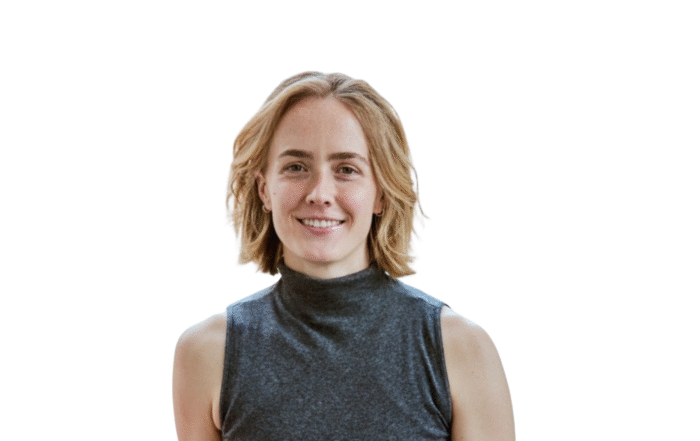
Morgan Caplan
Senior Communications Manager
After the passage of the One Big Beautiful Bill, we turned to someone who understands why companies must keep pushing for clean energy. Today, we’re featuring Heather O’Neill, president and CEO of Advanced Energy United, who joined us over Zoom to talk about United’s unique position in the clean energy landscape, lessons learned from the One Big Beautiful Bill, and Heather’s two-year backpacking trip around the world.
About Heather O’Neill: Heather O’Neill is president and CEO of Advanced Energy United. Previously, Heather served as senior vice president of strategic partnerships, where she was responsible for building, deepening, and broadening Advanced Energy United’s relationships with funders, foundations, and allied organizations.
Heather has spent her career helping build and grow mission-driven organizations. Before joining Advanced Energy United, Heather established and led the clean energy and environment portfolio at the Robertson Foundation, a $1 billion family philanthropy. Previously, she was Director of Public Affairs for Danco Laboratories LLC, a startup women’s health pharmaceutical company. In addition to her work with Advanced Energy United, Heather sits on the Climate Action Reserve board of directors.
![]() Could you share your path into clean energy and what ultimately led you to take on the role of President of Advanced Energy United?
Could you share your path into clean energy and what ultimately led you to take on the role of President of Advanced Energy United?
I love this question because it makes me reflect on what made me come into this space. I think there are similarities to the moment in which we find ourselves today. So I helped found Advanced Energy United about 14 years ago. And again, very different presidential administration, but a very similar—in some ways—situation in Washington D.C. where we weren’t able to move good policy forward on climate and clean energy.
So we were stuck, and we’d been pushing very hard. Folks have been focused in and on Washington D.C., and at that moment, recognizing and realizing that states are really where advanced energy policies markets are shaped. Billions of dollars of investment decisions are being made by public utility commissions and the light in states across the country.
And so Advanced Energy United was founded. I helped found it to really be deeply engaged and rooted in states and regions and able to really move. I think again, we’ve seen states move on some of the most forward looking and politically resilient climate and clean energy policies that we have to date. And so that kind of moment in time and where we are today, very similar in some respects.
And so for us at United, we have teams on the ground in state capitals across the country, red and blue and purple alike at the RTOs and obviously in DC as well. But again, this is the moment where we really need to be investing heavily in the states and regions. So it’s just an interesting echo from—no pun intended—14 years ago.
![]() How do you see United’s unique role in the clean energy landscape, and what sets you apart from other trade associations in the space?
How do you see United’s unique role in the clean energy landscape, and what sets you apart from other trade associations in the space?
So we’re working closely with other organizations, our peers in the space. I think there are two key differentiators for us. One is we’re multi-technology, and again, that’s something that we’re seeing many other associations and groups and companies, right? So find me a solar company that isn’t solar and storage now, or storage and solar, as the case may be.
So we’ve been multi-technology from the beginning, and that’s everything from demand side, grid edge, distributed energy resources of all stripes, large scale renewables, advanced geothermal storage, and then on into transmission technologies, as well as transportation and building electrification technologies. So it’s really the whole suite of advanced energy technologies and solutions. And I think that makes a real difference when we’re coming in with our members to talk to decision makers, because we’re coming in with a suite of technology solutions, not just one single answer. So that’s one piece.
The other piece, which I did start talking about is really, we were built to really engage deeply in states and regions. So our teams are on the ground. We’ve been remote from the very beginning, because we want our teams to have the relationships and the networks on the ground in the states in which they’re operating. So we’ve been active and engaged in states. We’re now on the ground in 19 states in five of the RTOs and ISOs, and that’s our bread and butter.
We’re obviously paying attention to and engaged in Washington D.C. as well, whether it’s on the Hill or at FERC, but very much about, can we get state leaders to take action, whether it’s a governor, whether it’s a state legislator, or whether it’s a public utility commissioner.
![]() Are there any lessons the clean energy community should take away from the One Big Beautiful Bill passage or the last few months overall?
Are there any lessons the clean energy community should take away from the One Big Beautiful Bill passage or the last few months overall?
So, I mean, this is, it is tough. We’re in a tough environment, right? And I think when I look back at it, we preserved what we could preserve in a tough political climate. And our industry, we showed up and we told stories, right? We told the stories state by state, community by community, of the investments that our member companies were making in those states, the jobs that we had created, and the gigawatts of energy that we had produced. And we also told the story of the planned investments that may not materialize now.
And so that, to me, I mean, I think one of your recent newsletters touched on this, is that we have to be communicating those stories. They have to be real, they have to be grounded, they have to be localized. And at least, again, in Advanced Energy United, I think we did something. We had a site called Unlocking Advanced Energy where we were telling stories across, I think, 11 different states, maybe almost 80 different stories across 10 of the different, 10 or 11 of the individual tax credits in question. And so I think we did tell those stories. Could we do more? Could we do better? Again, the outcomes are not what any of us wanted. And so I think when I look at what we were able to do, I feel good about what that we were able to preserve, what we could preserve.
But I think that political climate in DC just made it very challenging to get a positive outcome. So the more storytelling that we can do, that we can continue to do, we’re going to take those stories and move it now into some accountability pieces as well. I think that’s definitely a piece where what we need to do is make sure that voters are holding congresspeople accountable in the next election.
![]() What’s the biggest risk you’ve ever taken?
What’s the biggest risk you’ve ever taken?
Well, my career’s been filled with risks, I think, because I like getting things off the ground. And so any time you’re thinking about a startup, whether it’s an issue, or a product, or a service, that’s risky. And so joining it and helping create and shape Advanced Energy United, when I joined it, was basically a concept. We didn’t have a CEO.
I had been on the philanthropy side of the table, so I had built and led an environment grantmaking strategy and program. And it would have been, I think, very easy for me to stay in that space, in that role. But that’s just not, I like a challenge. And I saw the need for a group like Advanced Energy United.
And so that coming in and helping found and create United was a huge risk, but obviously one I feel good about. But there were a lot of folks at the time who thought I was crazy to do it. I feel very good about it, but definitely at the time, as I moved west with my family and was talking with the co-founders of United about the concept and what we could do together, and I just got incredibly excited about the potential impact we could have and the need for an organization like United. So again, feeling good about that risk for sure.
![]() What’s something about you that might surprise people?
What’s something about you that might surprise people?
We’re going to go way back to what my children referred to as the dark ages, which is when I graduated from college. I didn’t quite know what I wanted to do, and it was a time where it was a lousy job market, so there weren’t a whole lot of opportunities falling at my feet. A friend of mine took off, we bought round the world tickets and embarked on what turned into a two-year journey around the world, backpacking and basically working to earn money to keep going.
I cleaned hostels in New Zealand, I waitressed and bartended in Hong Kong, and then I worked on live aboard dive boats in the Red Sea in Egypt, just to, again, keep making some money to keep paying for hostels and keep moving forward.
Incredible life lessons from that—probably the best two years of my life, and certainly probably if folks know me now, would not think of me as somebody who put on a backpack and hiking shoes.
Know someone who should be featured? Email us: info@echocomms.com.
Sign up for our newsletter
Receive updates on our work, industry news, and more.




